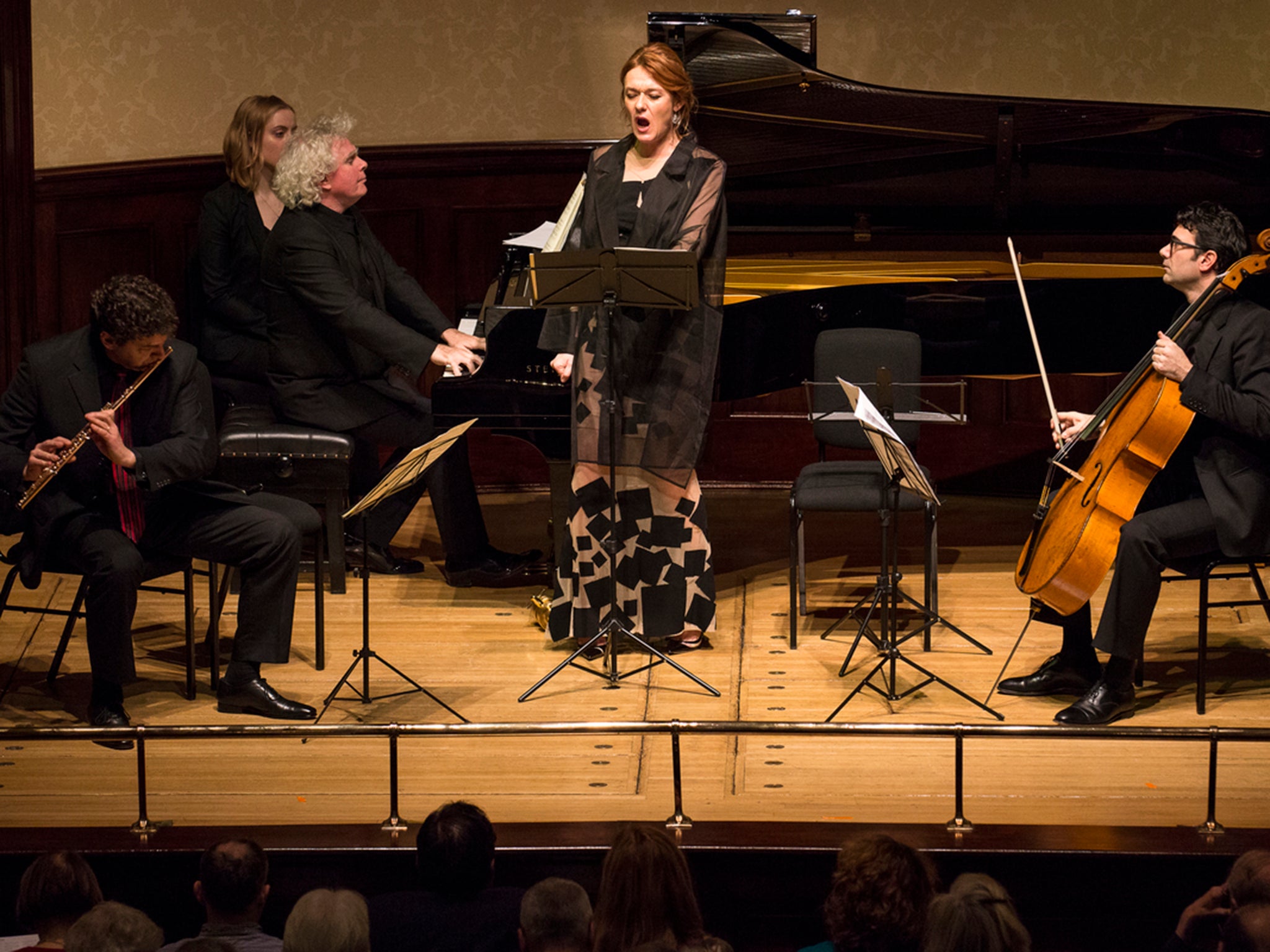Magdalena Kozena/Rattle/et al, Wigmore Hall, classical review: Flawless performance from start to finish
A fascinating evening, which absolutely requires a repeat

Your support helps us to tell the story
From reproductive rights to climate change to Big Tech, The Independent is on the ground when the story is developing. Whether it's investigating the financials of Elon Musk's pro-Trump PAC or producing our latest documentary, 'The A Word', which shines a light on the American women fighting for reproductive rights, we know how important it is to parse out the facts from the messaging.
At such a critical moment in US history, we need reporters on the ground. Your donation allows us to keep sending journalists to speak to both sides of the story.
The Independent is trusted by Americans across the entire political spectrum. And unlike many other quality news outlets, we choose not to lock Americans out of our reporting and analysis with paywalls. We believe quality journalism should be available to everyone, paid for by those who can afford it.
Your support makes all the difference.‘Celebrating Magdalena Kozena’ was the title, and I’ve never seen this Czech mezzo so relaxed in recital, so in control of her material, so triumphantly happy. It certainly helped that her husband Simon Rattle was officiating with unobtrusive competence at the piano, and also that she wound up on home territory, but from start to finish this was a flawless performance. Supported by six ace instrumentalists who rang the changes in accompaniment, she moved from Chausson, Stravinsky and Ravel, via Strauss and Brahms, to Janacek’s Nursery Rhymes and a successfully idiomatic arrangement of six Dvorak songs which she had commissioned from Duncan Ward. The connecting theme was derangement, with Ophelia appearing in many guises.
Each group of songs brought its own particular sound-world, with Kozena colouring her voice accordingly, moving from burnished fullness to sighing resignation in the Chausson, singing with exhausted languor in the Ravel, with pert comedy in the Janacek (where each song was a joke cut off in mid-phrase), and with ravishing smoothness in Brahms’s glorious Ophelia-Lieder, each of which was one single musical thought. Stravinsky’s Three Songs from William Shakespeare were diamond-hard, exquisitely-delivered miniatures, and Strauss’s Drei Lieder der Ophelia came over with dazzling brilliance. A fascinating evening, which absolutely requires a repeat.
Join our commenting forum
Join thought-provoking conversations, follow other Independent readers and see their replies
Comments